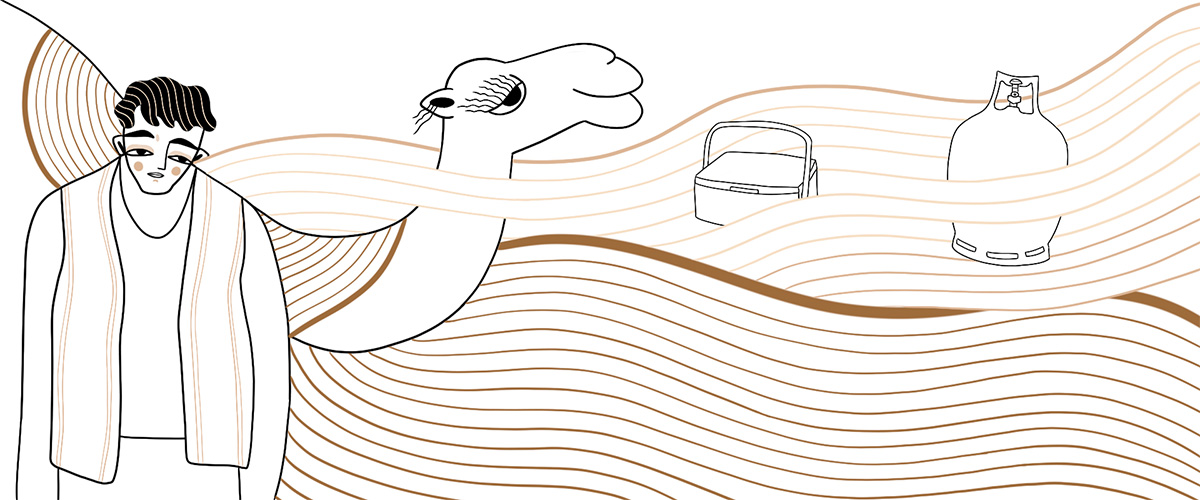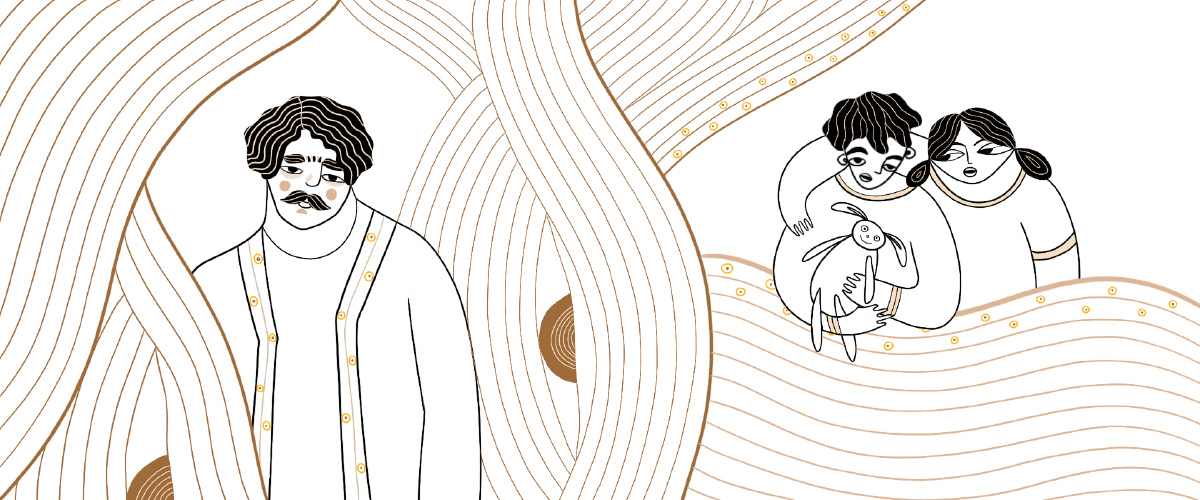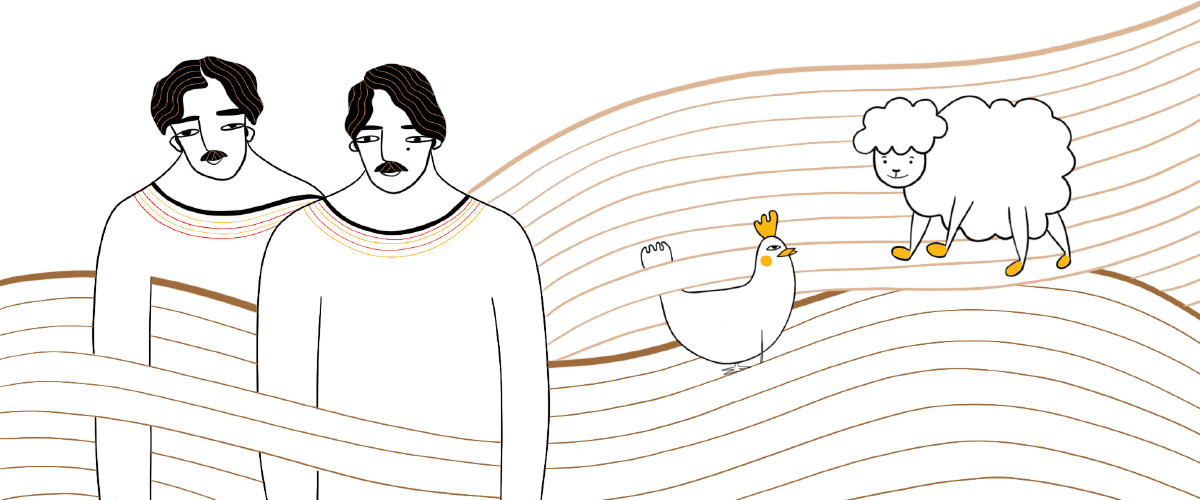Stories 1
Gulzar has a little kitchen, with a stove, a gas cylinder, and an ice box. Inside his portable home that is less than a km from the highway, he doesn’t have air conditioning or bathroom facilities.
When he first arrived, there used to be a portable toilet. But young kids, who drove into the desert for fun, would frequently use it and leave it trashed. Gulzar ended up having to clean after them. His employer couldn’t find a solution to prevent this, and so one time when it got broken, Gulzar decided to ask his employer to have it fully removed.







